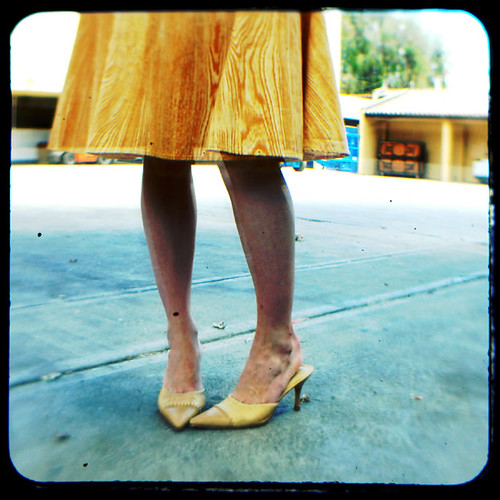A while back, a reader asked me to help her improve her relationships with her siblings. It has taken me a while to tackle this because I think I was subconsciously pooped after analysing my relationship with my twin.
I come from a vast litter so I feel reasonably qualified to say something about this. From my experience, deciding and being prepared to work (for a long time if required) to redefine the terms of engagement with your brothers and sisters is crucial. It's not a given that these relationships make the transition from childhood relationships (and the mentality that goes with being needy, super-sensitive little people) naturally. This, of course, involves being honest about what you're bringing to the relationship table and whether and how you're allowing it to grow or not.
You can start by stating (calmly and sometimes repeatedly) to yourself and potentially to your a sibling things like, "I do not want to talk to you like this. This is a negative pattern that may have been OK when we were younger, but we're adults now."
I have had to say statements like this (in a more natural, me-form) to certain family members, and it's definitely been the general ethos for my own reflections. It's a delicate blend of big and small things. The small things, in my experience work better.
To this end, I have asked myself things like: Are my brothers and sisters balcony or basement people? Are they cheering me on and affirming me or dragging me down? Which one am I to them? I have borrowed these phrases, by the way, rather recklessly from
Joyce Landorf, whose work I have never read and whom I am fairly certain is more clappy (and giving, and great!) than me. But I think it's a wonderful metaphor for nicely streamlining people in your life (often just for a short while) and also for being more honest about your behaviour towards others.
Of course, there is a lot more guilt and obligation when it comes to family and sometimes, particularly with parents and older relatives, you can never fully escape these expected patterns of behaviour. It's often very difficult and unsettling for family, particularly parents, to revise their concepts and expectations of you.
In some distressing cases, I think having a clean, finite break is healthy. It's often hard enough to be kind and aware to strong, positive people around you, let alone people who are emotionally greedy and manipulative etc. so sometimes you need a circuit breaker. You don't have to announce this in some impassioned way. You can just quietly give yourself some time and space to recharge.
I think when there is tension with family members the main things to work on from your end are being aware and self-disciplined about your own mental state before entering conversations, and carefully watching how much emotional baggage you bring into an interaction.
I think that last point's essential, really. You have to be able let go of the trailer of rubbish from the past; to not expect some kind of definitive, consensual, formal family statement of what exactly happened in your childhood and adolescence and who was treated how and to what effect. Part of being an adult, I think, is to decide to endorse your own version of reality, knowing that memory distorts and tends to focus on the negative, traumatic, mortifying experiences over the more normal, and even blissful ones, and then to put it away on the shelf.
Of course, siblings often want you to sign off on their versions too, which can sometimes mean getting embroiled in history wars. This requires knowing when to validate or gently test their histories and when to simply avoid these moves. You have to make your own boundaries according to what you're prepared to suffer and lose (sometimes you just don't want to lose a couple of hours of your time trawling through the archives and then an evening after recovering).
As with all relationships, relating to siblings is about constantly working on being present, calm and assertive (using as much 'When this happens, I feel...' language as possible, as distinct from 'you are a...' language). I read somewhere that often we think we're being adults when we criticise others by using behaviour-based examples, but this tone can often disguise a childish tendency to start introducing evidence from every part and time of the other person's life. Sometimes we get empowered by others (finally!) agreeing with our frustrations and that can give us a surge of energy to start tackling all the grievances you've ever had with that person. That's not fair.
Another thing that is often not fair (or useful) is that, with siblings, we are so much more likely to solve their problems when they actually seek validation (simple recognition of the underlying emotion). To make it even more fraught, we're also more likely to bring in examples from ten years ago, or to stitch the incident to another one, or worst still to use it against the person as an example of some wider, less functional characteristic they have or have had. These approaches are too blunt to make any pretty affinity shapes and should be traded in.
It's a big deal when a family member gives you a compliment. We're often still like little doggies in need of a Pedigree Gravy Bone. Give compliments, laugh, enjoy them.
I am lucky that my family is loving, fairly open, intelligent, humourous, and very supportive. Sometimes we can sometimes be a little rough in our delivery (the funny and the harsh are not always distinguishable chez nous), but I think for the most part we try to be gentle and positive with each other. There's an implicit understanding that now that we're all over 21 and living our own lives, it's a choice to be in each other's lives beyond family get-togethers. "You can go off people, you know"- this is something I say to my family sometimes to playfully remind them that my love and admiration are not unconditional! No, really, I think we actually want to be friends and simply like each other and these make it easier.
The last thing I would say though is that it's very important not to catastrophise when you have a tense or horrible interaction with a family member. You have to avoid linking the incident to the many other similar instances stored away in your file. You also have to challenge thoughts like, "We are never be able to get along" or "[name] is always going to be a negative influence in my life."
At the risk of sounding like I am trivialising individual cases (there's a spectrum of hurt and complexity in family backgrounds), sometimes when you argue with siblings you're just hungry, overworked and/or tired, and simply don't quite have the mental resources or social sanctions (that help regulate other friendships) not to fall back into bad habits. But that happens and you have to forgive yourself quickly and just try better next time.
For what it's worth, I have to deal with that pattern daily with almost everyone in some small way. I am often saying snippy things, declaring my worries or painting potential crises to my loved-ones only to realise after that I just needed a hearty meal, a walk outside, a quick kip or a kind word. So, yeah, being able to feed, walk and assure yourself and put yourself to bed when necessary are also important skills in adult relationships, including kinships.
Anyone else have any ideas for dealing with sibling difficulties?
Family: Please read 'comments' for clarification. I am certainly not in any conflict with any of you guys. It's all very peachy and positive (and tacit), as it is, thankfully, almost all of the time...
 photo by: Ali Edwards
photo by: Ali Edwards













